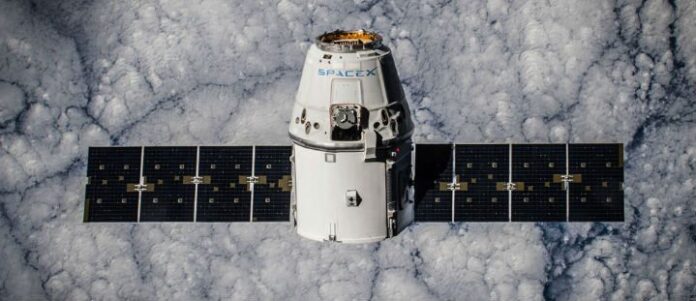SpaceX satellite Internet could challenge grounded telcos
Its official: SpaceX CEO Elon Musk, also co-founder of PayPal and carmaker Tesla, has joined forces with Google to bring Internet access to everyone. Traditional cellphone companies should take note and prepare to adjust their business models accordingly. Google announced its $1 billion investment in SpaceX after Musk announced plans to build a constellation of satellites that would provide high-speed broadband Internet access on a global scale.
If executives at Verizon Communications and AT&T are scratching their heads wondering why this will affect them, all they need to do is review how their customers are using their smartphone devices. Increasingly, our globalized society has been forsaking the traditional telephone call for text messaging. In recent years, text messaging has given way to Web-based messaging apps such as Facebook Messenger, WeChat and WhatsApp. This has led cell hone companies to raise rates on data plans and phase out unlimited data plans, much to their customers’ unhappiness. If Google and SpaceX are able to provide a way for the modern cellphone user to subscribe to an easy and affordable satellite network rather than a cumbersome cellphone contract, I have little doubt that frustrated consumers would abandon traditional cellphone companies in droves. Google and other smartphone makers such as Apple and Samsung would probably see a spike in profits as people shift to a new generation of devices designed from the ground up to be mobile computing devices with built-in text and video chat functions.
Verizon and AT&T would also probably take a hit on at-home Internet service, a substantial part of which still relies on landlines. Comcast, which is a poster child for anti-trust regulation, would most likely struggle to remain in demand. Some may think I’m being a bit harsh because satellite technology, after all, has its own drawbacks. One is the expensive prospect of building and launching a constellation of satellites. Another is reliability; if a satellite is damaged, or perhaps if there is just a bad storm, coverage could go out.
To those charges I would answer that a continuous miniaturization of electronics since the 1990s has made the cube satellite. This is a device which costs a few hundred thousand dollars to produce and is as reliable and effective as its more-costly larger cousins. Cube-Sats are also far less heavy, which makes them cheaper and easier to launch.
I have long thought that the cellphone tower and telephone line will someday go the way of the telegraph line. But, telecom giants of today have the opportunity to evolve and survive. It will be a struggle, no doubt, but I have faith that in 10 years or less Verizon, AT&T and other major players will be financing their own Internet satellites and may even be producing their own line of wireless Internet communication products. Musk has stated he hopes to use his Internet satellite constellation as a steady revenue stream to finance the long-term colonization of Mars – a worthy goal I applaud, and perhaps an investment opportunity for the future CEOs of AT&T and Verizon who are currently finishing elementary school. If Musk’s Martian colony ever gets off the ground, it too will require wireless communications.

